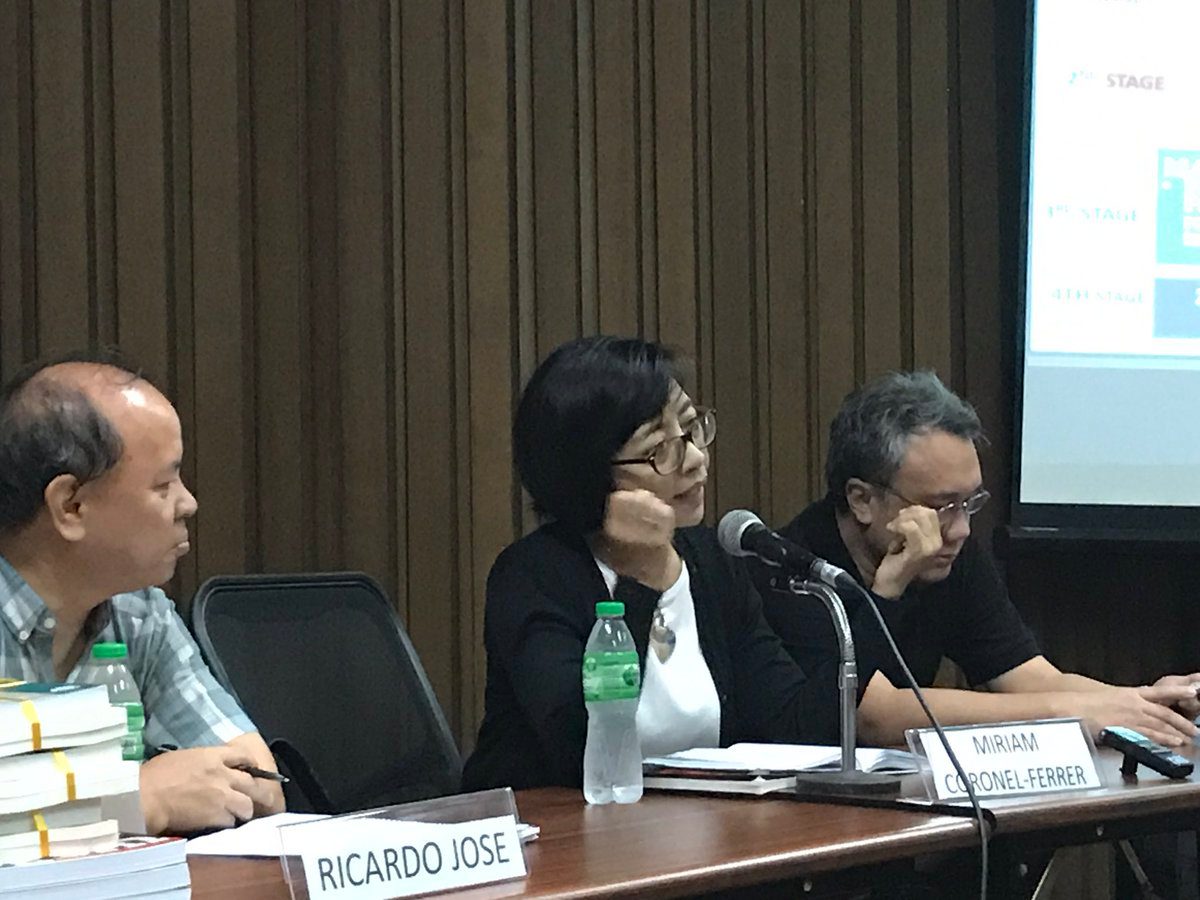SUMMARY
This is AI generated summarization, which may have errors. For context, always refer to the full article.

MANILA, Philippines – Experts think that a martial law declared nationwide is not sustainable in the long run.
In a forum at the University of the Philippines (UP)-Diliman, defense analyst Jose Antonio Custodio said on Monday, September 25, the Duterte administration will have problems in sustaining a martial law regime.
“The [situation] now is entirely different from the Martial Law regime in 1972. You didn’t have a military that is overstretched,” said Custodio.
Clashes erupted between government forces and local terrorist groups Maute and Abu Sayyaf late May this year, prompting President Rodrigo Duterte to declare martial law in Mindanao. Four months later, the fighting continues. (READ: Marawi generals cross critical bridges in battle area)
Custodio said Duterte may extend martial law to cover the entire country, as he frequently threatens to do, but he may encounter problems in implementing it with his “tools unsharpened.” (READ: Duterte to military: I need you in leading the country)
“Oo nga, p’wede ka mag-martial law, but baka pagod na ang military mo from Marawi,” he said. (Yes, you may declare martial law, but your military might be already tired from the fighting in Marawi.)
Custodio said that of the total 120,000 soldiers, only one-third or about 40,000 are to be deployed. He cautioned that if soldiers are to be assigned from one hotspot to another, the military might protest. (READ: Where does the military stand with Duterte?)
“Anong effect niyan sa sundalo? Either mag-amok ka or mag-gripe ka na. (What is the effect on soldiers? Either they run amok or they gripe.) This is the problem they have to grapple with,” said Custodio.
President Duterte declared martial law over Mindanao following the attack of the Maute Group in Marawi City. (READ: Martial Law 101: Things you should know)
Duterte said that he is considering to expand the implementation of martial law to cover the entire Philippines should the terrorism threat persists.
On Friday, September 15, Defense Secretary Delfin Lorenzana downplayed the President’s threats of a nationwide declaration in response to protest actions of leftists. Lorenzana said that, by his estimate, “chances are remote.”
“The Battle of Marawi is the longest for all its intent and purposes. Apart from the money being pledged there, what is the plan?” Custodio asked.
Federalism woes
During the forum, UP professor Miriam Coronel-Ferrer, former peace panel chair, and Ricardo Reyes, former head of Freedom from Debt Coalition, also questioned the direction of the Duterte administration.
Ferrer said that implementing a parliamentary system has its own merits, but the intention is something that needs to be known.
Citing a popular event by the UP School of Economics, Ferrer said, “Yes, federalism is the answer. But what is the question?” (READ: Will federalism address PH woes? Pros and cons of making the shift)
During the first State of the Nation Address, Duterte said he wanted a federal form of government with a prime minister and a president. (READ: Why federalism is not the answer)
Should the federalism project move forward, one way of amending the 1987 Constitution is through a Constituent Assembly – which is composed of the incumbent Congress, amending the Constitution “upon a vote of 3/4 of all its members.”
She said that the Constitution is drafted to be restrictive and has a lot of safeguards from authoritarian rule.
“How can you get away with this? Scrap it all together? They might play around our Constitution. Prepare for the worst,” Ferrer cautioned.
Intention on Chinese loans
Meanwhile, Reyes questions the intention of the President with all the debt incurred from China. (READ: Duterte’s China policy shift: Strategy or serendipity?)
According to him, the Chinese program on infrastructure requires equity from projects when debt is not paid on time.
A report from the Inquirer quotes Hardeep Puri, chair of the Indian think tank Research and Information System for Developing Countries, warning the Philippines of China-funded projects.
“If debt becomes equity, then you’re selling your country. You (the Philippines) might end up selling more than your islands,” he said.
In May, communist leader Jose Maria Sison also questioned Duterte’s intention in heavily borrowing from China, a policy that could turn the country into a “debt slave” of the Asian economic power.
The planned $167 billion in loans, based on pronouncements by Budget Secretary Benjamin Diokno, could balloon to $452 billion and bring the country’s debt-to-GDP ratio to the second worst in the world.
“We can infer that the President is already giving away the West Philippine Sea in exchange for these infrastructure programs…. Ano nga ba ang direksyon ni Duterte? (What really is the direction that Duterte is taking?),” asked Reyes.
Following his bilateral meetings with Chinese leaders, the President gave assurances that Beijing is “sincere” about delivering its commitments to the country. (READ: Duterte faces Asia’s Goliath: What PH stands to gain or lose in China)
Former Senate President Aquilino Pimentel Jr also warned the administration of its extensive relations with China. Pimentel said Duterte should inform the public on how they plan to protect the country from Chinese interests.
In 2016, the Philippines won the arbitration case against China on the maritime dispute on the West Philippine Sea. Chinese state media Xinhua News Agency called the ruling “null and void.” (READ: West Philippine Sea: Why China can’t just ignore Hague ruling)
The disputed sea is believed to hold unexploited oil and gas deposits under its seabed. It is also home to some of the world’s biggest coral reefs.
“What can we do now? Like what [the other experts here] said, be vigilant,” said Custodio. – Rappler.com
Add a comment
How does this make you feel?
There are no comments yet. Add your comment to start the conversation.